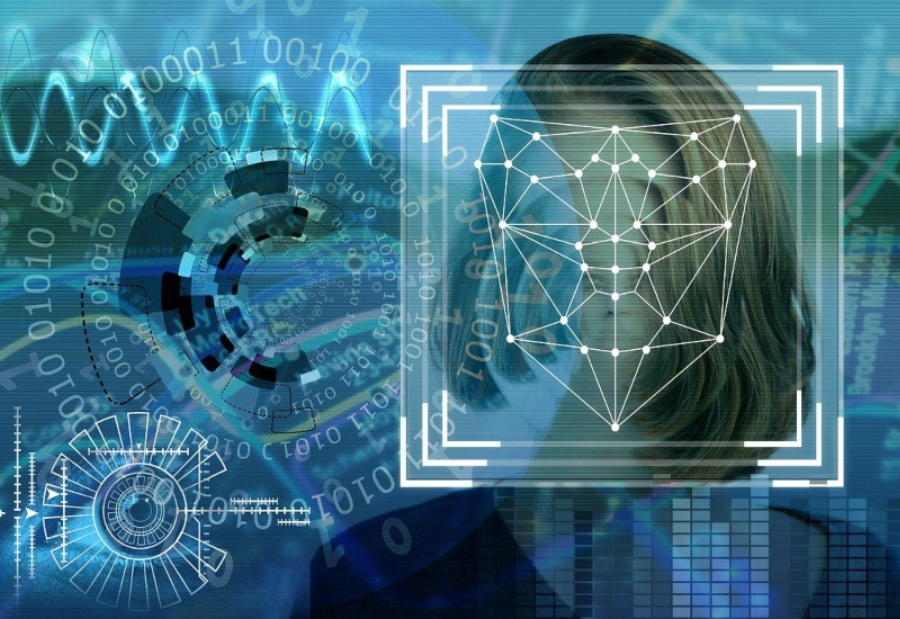In a world where our phones unlock with a glance and doors open with a fingerprint, biometric data has become part of our daily lives. Combined with artificial intelligence, this technology offers incredible convenience – but at what cost to our privacy?
According to insights from The Mainstream, as biometric technologies become embedded in everything from smartphones to surveillance systems, the need to balance innovation with ethical data protection is more crucial than ever. This article explores how biometric data works, how AI processes it, and why it’s vital to understand the emerging privacy challenges that come with it.
Let’s explore why experts warn this could become the next major privacy crisis.
Understanding Biometric Data
Physical Identifiers
Your body’s unique features can be measured and tracked. This includes fingerprints, facial features, iris patterns, and even DNA – essentially, the biological traits that make you uniquely you.
Behavioral Patterns
The ways you move, speak, or interact with devices. Think about how you walk, type on your keyboard, or speak – these patterns can be as unique as your fingerprint and are increasingly being tracked.
How AI Processes Biometric Data
Data Collection
AI systems constantly gather biometric information through cameras, sensors, and devices. Every time you unlock your phone with your face or speak to a virtual assistant, you’re feeding data into these systems.
Pattern Recognition
Advanced algorithms analyze this collected data to identify patterns and make predictions. These systems can now recognize individuals in crowds, detect emotions from facial expressions, and even predict potential health issues.
As The Mainstream notes, while these innovations enhance security and personalization, they also raise significant concerns about data ownership, consent, and misuse.
Current Applications and Risks
Security Systems
Benefits: Quick and secure access to devices and buildings
Risks: Data breaches could expose permanent biological identifiers
Impact: Unlike passwords, you can’t change your fingerprints or face if compromised
Healthcare Monitoring
Benefits: Early disease detection and personalized treatment
Risks: Sensitive health data could be misused or sold
Impact: Could affect insurance rates or employment opportunities
Law Enforcement
Benefits: Improved criminal identification and public safety
Risks: Potential for surveillance overreach and misidentification
Impact: Could lead to privacy violations and wrongful arrests
The Privacy Concerns
Data Storage
Companies storing vast amounts of biometric data become attractive targets for hackers. Once biometric data is stolen, it’s permanently compromised – you can’t simply reset your face like a password.
Consent and Control
Many people don’t realize how their biometric data is being collected and used. Social media facial recognition and public surveillance systems often gather data without explicit consent.
Commercial Exploitation
Businesses can use biometric data for targeted advertising and behavior prediction. Your emotional reactions and physical responses could be analyzed for marketing purposes.
Future Implications
Employment Screening
Companies might use biometric data to assess job candidates’ personalities or predict their behavior. This raises concerns about discrimination and privacy in the workplace.
Financial Services
Banks and insurance companies could use biometric patterns to assess risk levels. Your walking pattern or voice stress levels might affect your credit score or insurance rates.
Social Impact
The combination of AI and biometric data could create an unprecedented level of surveillance. Every movement, expression, and interaction could be tracked and analyzed.
Protecting Your Biometric Privacy
Know Your Rights
- Research local biometric privacy laws
- Understand what data companies collect
- Learn how to opt out when possible
Limit Data Sharing
- Be selective about using biometric features
- Read privacy policies carefully
- Choose alternatives when available
Security Measures
- Use strong traditional passwords as alternatives
- Enable two-factor authentication
- Regularly review privacy settings
In Conclusion
The marriage of biometric data and AI represents both remarkable technological progress and significant privacy risks. As these technologies become more integrated into our daily lives, we must balance convenience with privacy protection. The decisions we make today about biometric data privacy will shape the future of personal security and individual freedom.
As The Mainstream emphasizes, the challenge isn’t stopping technological progress, but guiding it responsibly. Individuals, regulators, and organizations must work together to ensure that the future of biometrics prioritizes transparency, consent, and ethical governance.
Being informed and proactive about protecting our biometric information isn’t just about privacy – it’s about preserving our autonomy in an increasingly connected world.
Also read: Viksit Workforce for a Viksit Bharat
Do Follow: The Mainstream formerly known as CIO News LinkedIn Account | The Mainstream formerly known as CIO News Facebook | The Mainstream formerly known as CIO News Youtube | The Mainstream formerly known as CIO News Twitter
About us:
The Mainstream formerly known as CIO News is a premier platform dedicated to delivering latest news, updates, and insights from the tech industry. With its strong foundation of intellectual property and thought leadership, the platform is well-positioned to stay ahead of the curve and lead conversations about how technology shapes our world. From its early days as CIO News to its rebranding as The Mainstream on November 28, 2024, it has been expanding its global reach, targeting key markets in the Middle East & Africa, ASEAN, the USA, and the UK. The Mainstream is a vision to put technology at the center of every conversation, inspiring professionals and organizations to embrace the future of tech.




